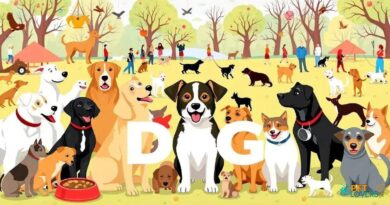What is age-specific dog care
What is Age-Specific Dog Care?
Age-specific dog care refers to the tailored approach of providing care and attention to dogs based on their life stages. Just like humans, dogs experience different needs and challenges as they age. Understanding these stages—puppy, adult, and senior—allows pet owners to offer the most appropriate care, ensuring a happy and healthy life for their furry companions.
Puppy Care: The Foundation of a Healthy Life
Puppies require special attention during their formative months. This stage is crucial for socialization, training, and health. Proper nutrition, vaccinations, and regular vet check-ups are essential to ensure that puppies grow into strong and healthy adults. Additionally, engaging in play and training helps develop their physical and mental skills, laying the groundwork for a well-adjusted dog.
Adult Dog Care: Maintaining Health and Vitality
As dogs transition into adulthood, their care needs shift. Adult dogs typically require a balanced diet, regular exercise, and routine veterinary visits to monitor their health. It’s important to maintain a consistent schedule for feeding and exercise to prevent obesity and other health issues. Mental stimulation through training and interactive play is also vital to keep adult dogs engaged and happy.
Senior Dog Care: Addressing Special Needs
Senior dogs often face unique challenges, including decreased mobility, dental issues, and potential chronic health conditions. Age-specific dog care for seniors involves providing a comfortable living environment, appropriate nutrition, and regular veterinary check-ups to manage any health concerns. Adjusting exercise routines to accommodate their physical limitations is also crucial for their well-being.
Nutritional Needs Across Life Stages
Nutrition plays a pivotal role in age-specific dog care. Puppies need a diet rich in protein and essential nutrients to support their rapid growth. Adult dogs benefit from a balanced diet that maintains their energy levels and overall health. Senior dogs may require specialized diets that address their lower activity levels and specific health issues, such as joint support or weight management.
Exercise Requirements by Age
Exercise needs vary significantly among different age groups of dogs. Puppies have high energy levels and require frequent playtime and short walks to burn off energy. Adult dogs need regular exercise to maintain their physical condition, while senior dogs may require gentler activities, such as short walks and light play, to keep them active without overexertion.
Grooming Needs Throughout Life
Grooming is another essential aspect of age-specific dog care. Puppies may need early grooming experiences to get accustomed to the process. Adult dogs require regular grooming to maintain their coat and skin health, while senior dogs may need more frequent grooming due to potential mobility issues and changes in their coat condition.
Behavioral Changes with Age
As dogs age, their behavior can change significantly. Puppies are often energetic and curious, while adult dogs may become more settled and focused. Senior dogs may exhibit signs of anxiety or confusion, especially if they experience cognitive decline. Understanding these behavioral changes is crucial for providing appropriate care and support throughout their lives.
Veterinary Care: A Lifelong Commitment
Regular veterinary care is vital at every stage of a dog’s life. Puppies require vaccinations and preventive care to establish a healthy foundation. Adult dogs benefit from routine check-ups to monitor their health, while senior dogs often need more frequent visits to manage age-related health issues. A proactive approach to veterinary care ensures that dogs receive the best possible support as they age.
Creating a Safe Environment for Dogs of All Ages
Providing a safe and comfortable environment is essential for dogs at any age. For puppies, this means creating a space free from hazards to explore safely. Adult dogs need a secure area for play and relaxation, while senior dogs benefit from accommodations that support their mobility, such as non-slip surfaces and easy access to their favorite resting spots.




